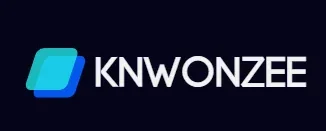Open Source Quantum Computing Training (2024)

The world of quantum computing is exhilarating and transformative. As more industries gravitate towards quantum applications, the demand for knowledge in this area continues to grow. Fortunately, open source quantum computing training provides a gateway to this brave new realm.
Best Open Source Platforms
Open source is revolutionizing quantum training, ensuring knowledge is freely accessible. Here are platforms that stand out:
- Qiskit by IBM: This platform offers tools for quantum software development, allowing beginners and experts alike to design quantum circuits and simulate them.
- QuTiP: A quantum toolbox in Python, great for those familiar with the Python language. It’s excellent for quantum mechanics basics and simulations.
- Quantum Computing Playground: A web-based quantum simulator where users can play with quantum algorithms and even create their own.
Languages for Beginners
Starting in quantum computing can seem intimidating, but several languages are tailored for beginners:
- Q# by Microsoft: A unique language dedicated to quantum algorithms.
- Silq: Designed to make quantum programming more intuitive, especially for those with a programming background.
Tutorials
- Strangeworks QC: Offers a plethora of quantum computing tutorials.
- Qiskit Textbook: An interactive online textbook introducing quantum algorithms and quantum gate operations.
Training Online
The digital era has ushered in a plethora of online resources for quantum education:
- edX and Coursera: Many universities now offer quantum courses on these platforms, catering to beginners and experts.
- Quantum Computing for Non-physicists: A course specifically designed for those without a physics background.
Free Resources
- Quantum Country: An interactive website that delves deep into quantum mechanics basics.
- Quantum Computing Workshops Near Me: A quick search online can yield results for local quantum workshops and seminars.
Quantum Algorithms
Quantum algorithms play a fundamental role in quantum computing. Their power lies in the ability to process information differently than classical algorithms. Dive deep into popular ones like Grover’s and Shor’s.
Hands-on Quantum Circuit Design
Designing quantum circuits is an art. Tools like Quirk provide an interactive playground to help you design, visualize, and understand quantum gate operations.
Quantum Software Development Courses
For those eager to delve into the software side of quantum, there are ample resources:
- Quantum Machine Learning Training: Machine learning gets a quantum twist, opening doors to unprecedented data processing speeds.
- Quantum Cryptography Explained: Delve into the world of quantum secure communications.
- Quantum Software Tools: Open source tools like ProjectQ and PyQuil assist developers in building quantum applications.
Quantum Gate Operations
Just like classical computers use logic gates, quantum computers operate using quantum gates. By manipulating quantum bits (qubits), these gates form the foundation of quantum circuits.
Quantum Technology Advancements
Quantum technology is rapidly evolving, driving innovations that were once considered the realm of science fiction. Quantum entanglement, once termed “spooky action at a distance” by Einstein, now stands as a pillar for quantum communication.
Quantum Circuit Design
Before diving into the software aspects, one must grasp quantum circuit design. Quantum gates, unlike classical gates, allow for superposition and entanglement, introducing new computational possibilities.
- Quirk: A browser-based drag-and-drop tool, ideal for beginners to visualize and play with quantum circuits.
- Qiskit Terra: IBM’s open-source SDK that caters to quantum circuit design and optimization.
Quantum Simulation
Simulating quantum systems can help in understanding complex quantum phenomena:
- Quantum++: A general-purpose quantum simulator, it’s instrumental for those wanting to experiment without quantum hardware.
- LIQUi|>: Developed by Microsoft, it’s an extensive software suite for quantum research.
Quantum Information Theory
This discipline revolves around understanding, processing, and using quantum information:
- Quantum State Tomography: The process of determining the quantum state of a system.
- Quantum Channel Capacity: Understanding how much quantum information can be sent through a noisy channel.
Quantum Error Correction
A significant challenge in quantum computing is its susceptibility to errors. Quantum error correction methods are designed to detect and correct these errors:
- Surface Codes: A leading error-correcting method, surface codes utilize a two-dimensional array of qubits.
- Cat Codes: These leverage quantum superposition to protect against specific types of errors.
Quantum Computing Community
The quantum community is vibrant and ever-expanding:
- Quantum Open Source Foundation (QOSF): Fostering community-driven projects in quantum computing.
- Quantum Computing Meetups: Regular meetups around the globe help enthusiasts connect, share, and collaborate.
Quantum Computing Certification Programs
For those looking to formalize their quantum skills:
- Quantum Developer Certification by IBM: A comprehensive program focusing on quantum software development.
- Quantum Hardware Specialization by Google: Aimed at those diving deep into the hardware side of quantum computing.
FAQs
How to Learn Quantum Computing?
Start with basic quantum mechanics, followed by quantum programming languages. Engage in hands-on projects using quantum simulators.
Building Quantum Applications from Scratch?
Begin with understanding quantum algorithms, followed by quantum software tools to develop and test your application.
Quantum Computing Job Prospects?
The quantum realm is booming. Jobs span from quantum hardware specialists to quantum software developers. Leading tech companies like IBM, Google, and Microsoft are constantly on the lookout for quantum talent.
What are Quantum Software Tools?
These are specialized tools designed to develop, test, and run quantum algorithms. Popular tools include Qiskit, QuTiP, and PyQuil.
Where to find Quantum Computing Workshops Near Me?
Many universities and tech hubs organize workshops. Websites like Eventbrite or Meetup often list local quantum events.
What is Quantum Machine Learning Training?
It integrates quantum computing with machine learning, enabling faster data processing and advanced algorithms.
Also Read: What is a Benefit of Interference in Quantum Computing?
Conclusion
As the quantum landscape continually morphs, open source quantum computing training becomes invaluable. By embracing these resources, we are taking steps towards a quantum-empowered future, where computational boundaries are redefined, and possibilities are endless.





![How to Retrieve NIN Number? [Explain in 4 Easy Steps] 6 How-to-Retrieve-NIN-Number](https://knwonzee.com/wp-content/uploads/2023/08/How-to-Retrieve-NIN-Number-768x432.png)
